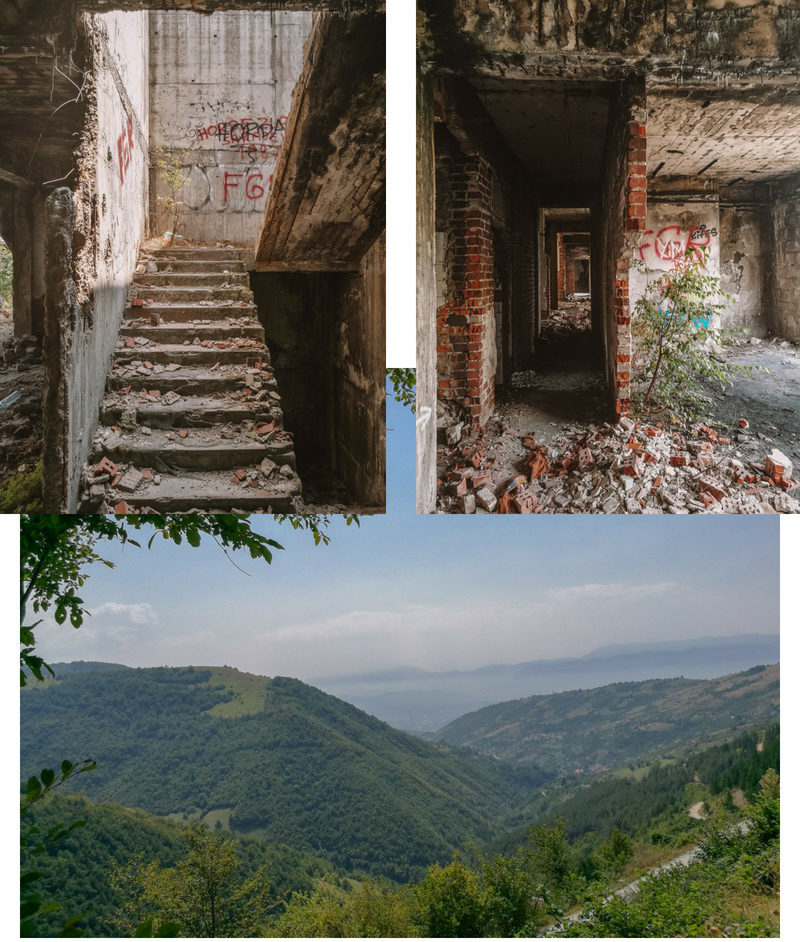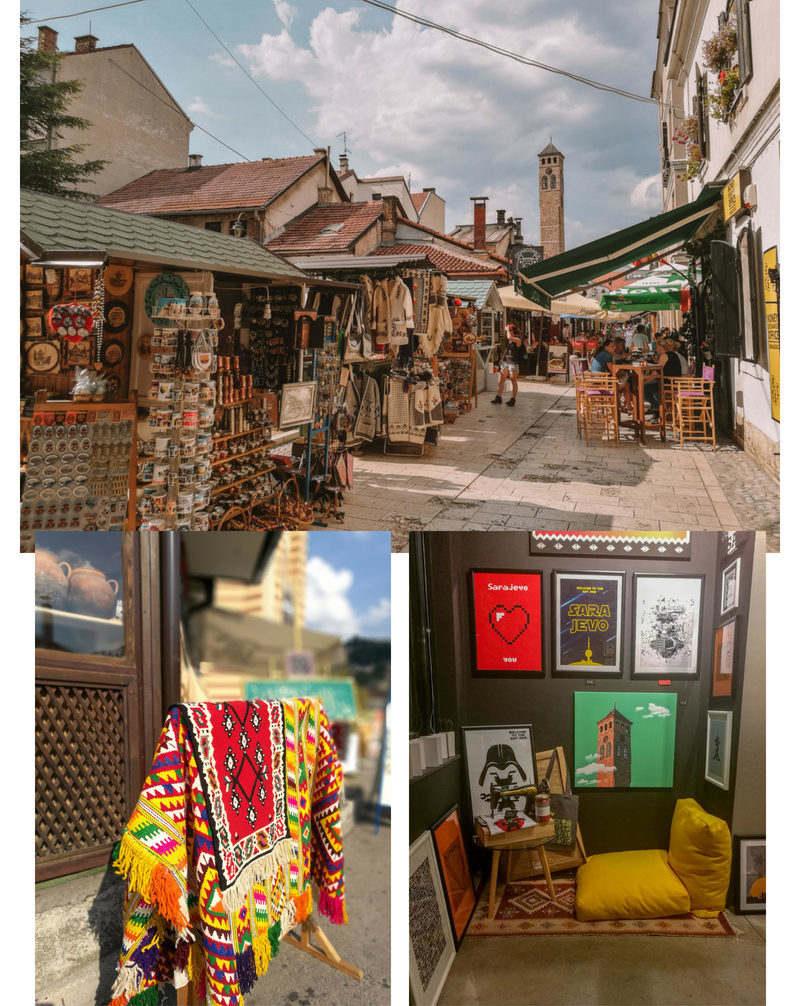Seit etwa zwei Jahren führe ich viele Konversationen, die in etwa so ablaufen:
»Ach so, dein Mann ist nicht aus Deutschland. Woher kommt er denn?«
»Aus Bosnien.«
»Ach, echt. Meine Putzfrau kommt auch aus Montenegro!«
Alternativen sind: Köche, Klofrauen, Gärtner oder Bauarbeiter, die wahlweise auch aus Serbien, Montenegro oder Albanien stammen. Scheint ja eh alles dasselbe zu sein.
Okay, ich will ehrlich sein: Also besonders viel wusste ich über Bosnien auch nicht, bevor ich meinen Mann kennen gelernt habe. Da war doch mal irgendwas mit dem ersten Weltkrieg oder? Und ziemlich viele Leute aus der Nachbarschaft kommen von dort – also aus diesem Ex-Jugoslawien. Da ist Bosnien doch ein Teil davon?
Wir werden in der Schule immer noch aufgeklärt über Deutschlands eigene Vergangenheit und ich gehöre zu den letzten, die sagen würden, dass das nicht richtig und wichtig ist. Aber je mehr ich über Bosnien und Herzegowina lerne, von meinem Mann und von seinen Freunden, umso schockierter bin ich, dass diese Land nie Thema während meiner Schulbildung gewesen ist.
Mein Schwiegervater ist einer der freundlichsten, humorvollsten und herzlichsten Menschen, die ich kennen gelernt habe. Der Wildfremde zum Grillen einlädt, der seine eingerosteten Deutschkenntnisse jedes Mal ausgräbt, wenn ich zu Besuch bin und der abends bei einem Bier gerne Fußball im Fernsehen anschaut. Ein ganz normaler Vater – der während der 1990er Jahre im Krieg gekämpft hat. Während ich daheim saß und die Sendung mit der Maus angeschaut habe.
Oder mein Freund Adi, dessen Familie nicht genug Geld hatte, um das Land während des Krieges zu verlassen und der an einem Nachmittag, als er draußen spielte, beinahe von einer Granate in Stück gerissen wurde. Sein Leben verdankt er einzig und allein seinem Hund – der einen tierischen sechsten Sinn bewiesen hat. Und trotzdem ist er ein guter Mensch, der im Leben alles richtig machen will, sich an Regeln halten möchte und versucht, das beste aus seiner Situation zu machen.

Ich bin selber in der privilegierten Situation, einfach nur Deutsch zu sein.
Nicht in einem Land aufgewachsen zu sein, das vom Krieg zerrissen wurde. Und auch, mein Heimatland nicht verlassen zu müssen, weil es mir keine Perspektive bietet. Aber seit ich Bosnien selbst und so viele Leute von dort kennen gelernt habe, macht es mich wütend, dass sie auf Gärtner oder Putzfrauen oder einfach nur schmarotzende Wirtschaftsflüchtlinge mit kriminellen Absichten reduziert werden.
Denn ganz ehrlich: So und so viele Bosnier (und Serben und Montenegriner…) leben schon seit Jahrzehnten in Deutschland – in anständigen Berufen – sprechen akzentfreier und grammatikalisch korrekter als Kollegah oder Bushido und haben sich so gut integriert, dass sie vielleicht höchstens an den ungewöhnlichen Namen mit dem slawischen Klang auffallen – wenn überhaupt.
Und selbst, wenn sie als Köche arbeiten oder als Gärtner: Wer könnte das nicht verstehen, wenn er daheim 250 Euro pro Monat verdient und davon auch noch die Universität seiner Kinder neben der Miete und dem sonstigen Leben bezahlen soll?
Wer könnte das nicht verstehen, wenn er daheim immer noch mit Hass und Abneigung konfrontiert wird? Wenn die eigene Verwandtschaft von den Nachbarn umgebracht wurde und niemand dafür zur Rechenschaft gezogen wird? Wer könnte das nicht verstehen, wenn er in einem Land leben würde, in dem die Jugendarbeitslosigkeit rund 55,5 Prozent beträgt und es sowieso keine Perspektive für ihn gibt?
Ich will gar nicht den Zeigefinger erheben und hier irgendjemandem vorwerfen, sich nie mit Osteuropa und den Ländern des ehemaligen Jugoslawiens beschäftigt zu haben. Es war einfach nicht Thema in Deutschland – zumindest irgendwie nicht in meiner Kindheit. Vielleicht war ich auch zu jung, vielleicht hat ja einer von euch andere Erfahrungen gemacht.
Aber ich würde ich liebend gerne Bosnien und vor allem meine Erfahrungen von dort und auch ein paar der Menschen, die dort Leben ein bisschen näher bringen. Dafür gibt es jetzt diese neue Kategorie: From Bosnia with Love. Ich freu mich drauf.

Und wenn ihr Fragen habt oder euch etwas interessiert, schreibt es gerne in die Kommentare oder schreibt mir eine Nachricht – ich werde das Thema dann in die Kolumne mit aufnehmen!